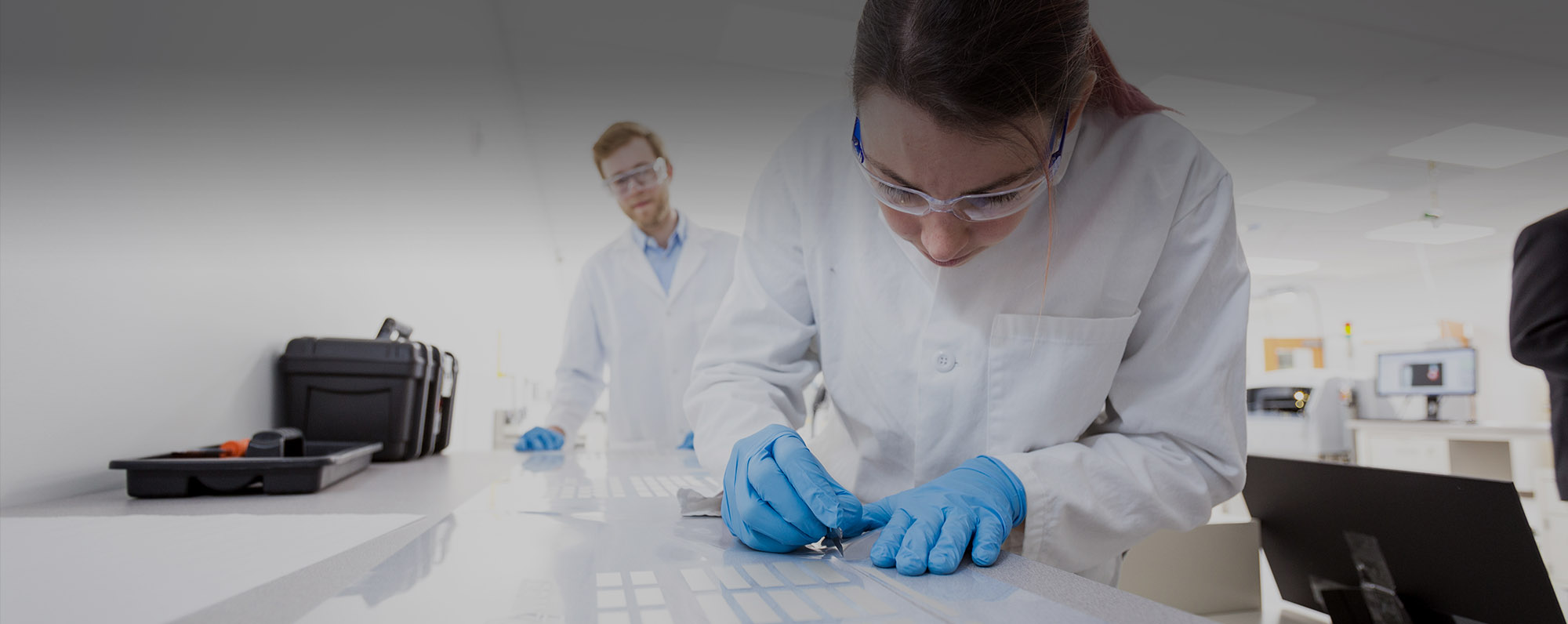UW's Climate Tech Entrepreneurship Competition
At the Environmental Innovation Challenge, held each spring by the Buerk Center for Entrepreneurship at the UW Foster School of Business, interdisciplinary student teams define an environmental problem, develop a solution, design and build a prototype, create a business plan that proves their solution has market potential, and pitch to 250+ judges at a demo-day event.
Since 2014, CEI has sponsored a $5,000 Climate Action Prize (formerly known as the Clean Energy Prize) rewarding student teams for novel hardware or software innovations that demonstrate a scalable approach for reducing emissions or sequestering greenhouse gases in any major sector of the economy. CEI also offers student teams prototyping funds and access to its Research Training Testbed to build and test their products.
Climate Action Prize History
2025
EnviroTect, a team of UW master’s in applied bioengineering students, won the 2025 Climate Action Prize for creating a filtering device to capture volatile gases from anesthesia machines during surgeries before they can be expelled into the environment.
2024
SuperSurya, a team of UW students in materials science & engineering, won the 2024 Clean Energy Prize for developing a new system for residential solar power that increases the energy efficiency of a wide range of panels.
2023
Net-Master won the Clean Energy Prize and the third place prize for its software that seeks to achieve greater energy efficiency in hyper-scale data centers. The team of Master of Science in Entrepreneurship students is developing software to dynamically predict the low traffic time and proactive turndown link transmission power in hyper-scale data centers to achieve energy efficiency and savings.
2022
For its unique take on solving the “scam” of plastic recycling, team Catalytic Carbon won both the grand prize and Clean Energy Prize in 2022. The team of aeronautics and astronomy, Master of Science in Entrepreneurship, and informatics students from the University of Washington utilizes a new recycling process that can quickly transform waste into carbon nanotubes and reusable hydrogen gas. They believe this solves an issue with current methods where only 9% of plastic is recycled correctly and over 75% ends up in landfills (according to the EPA).
2021
The 2021 Clean Energy Prize went to team PotentiaLi Energy. The UW team of MBA and electrical engineering students is developing a clean-energy bicycle charging system to minimize the climate impact of electrical mobility (the moving of people and goods) that currently relies on non-renewable energy sources like the electrical grid.
2020
The 2020 Clean Energy Prize went to Moment, a team of engineering students from Simon Fraser University in British Columbia that is developing sustainable energy storage from used electric vehicle batteries. Moment also received a $1,000 Connie Bourassa-Shaw Spark Prize. The company secured $3.5 million in seed funding in 2021.
ElectroSolar Oxygen returned for the 2020 EIC, which was held virtually due to COVID-19, and earned the $10,000 Herbert B. Jones Foundation second place prize!
2019
ElectroSolar Oxygen took home the 2019 Clean Energy Prize! Read more about their portable, solar-powered oxygen concentrator for healthcare in remote areas.
CEI Graduate Fellow Elizabeth Rasmussen led the MOtiF Materials team that took home the 2019 grand prize! Read more about Elizabeth and MOtiF Materials’ new reactor for making metal-organic frameworks, a class of advanced materials.
2018
The 2018 Clean Energy Prize was awarded to Battery Informatics from the University of Washington. The team of Business and Chemical Engineering students created valuation algorithms to give customers the ability to increase the life and performance of their energy storage projects involving lithium-ion batteries.
2017
Judges awarded the Clean Energy Prize as well as a “Judges Also Really Liked” award to Membrion. The team of UW chemical engineering and MBA students is an example of a growing trend in student entrepreneurship where an idea is “under production” for several years, validated, and submitted into competitions each year the students are eligible to compete.
2014 Clean Energy Prize winners NOVASolar Glazing returned to the competition and won the grand prize!
2016
The Clean Energy Prize and second place prize went to UW chemical engineering team Ionic Windows, which created low-cost, high-performance membranes for emerging grid-scale energy storage technologies, reducing the cost flow of batteries by 25 percent and making grid-scale renewable energy economically viable.
2015
The grand prize and Clean Energy Prize were awarded to FireBee, a UW mechanical engineering team. FireBee is a portable thermoelectric generator that turns cooking fires into personal power stations, creating an alternative energy source for people in countries that are otherwise off the grid.
Ion Informatics, a team of chemical engineering and business students, received an honorable mention prize.
2014
The first Clean Energy Prize sponsored by the UW Clean Energy Institute, as well as the overall second place prize, were awarded to NOVA Solar Window (Western Washington University). NOVA Solar Window combines the power producing capabilities of a solar panel with the utility of a traditional window. The utilization of transparent solar energy technology allows solar windows to provide renewable energy where traditional solar panels cannot.



